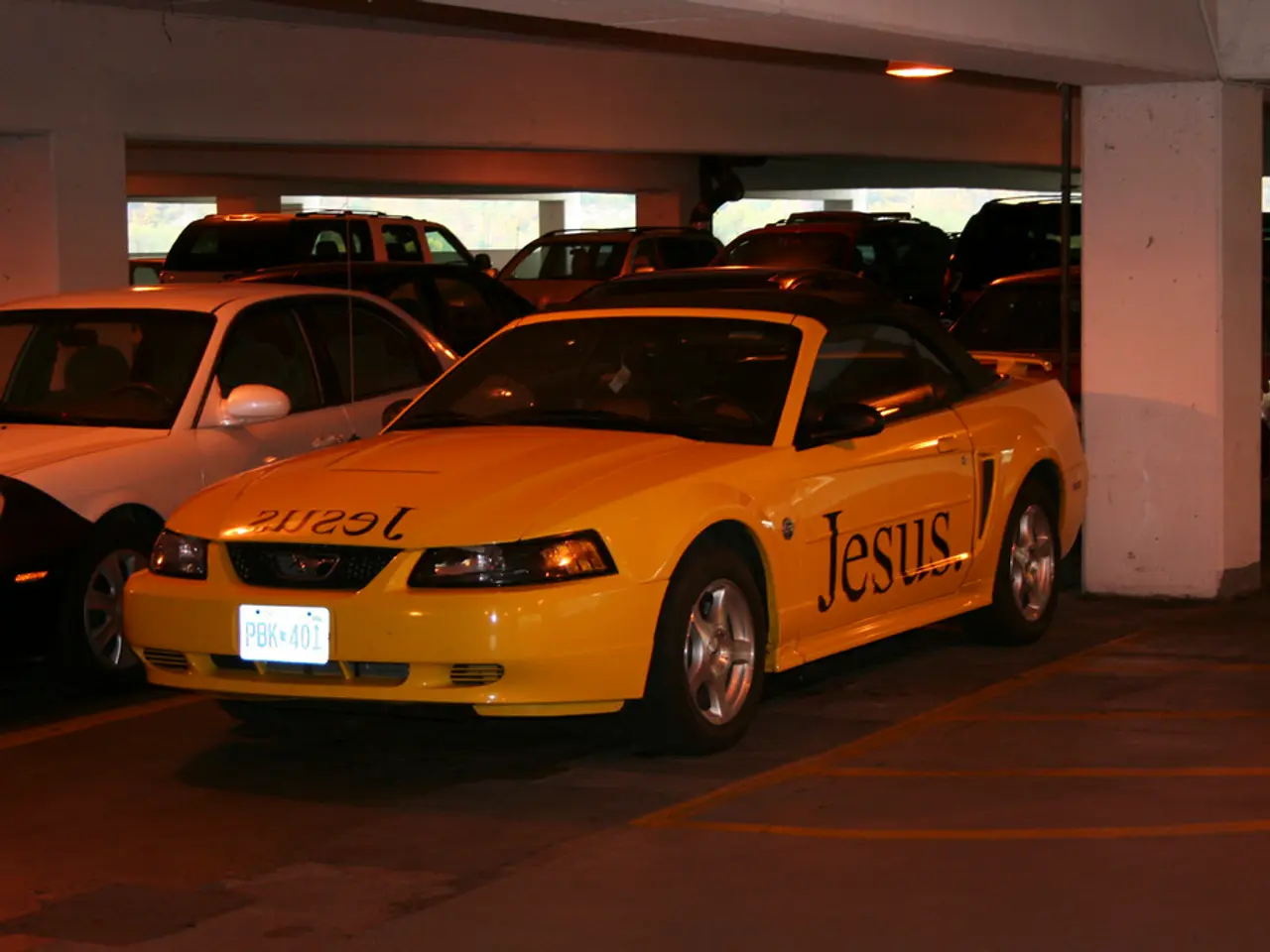Urban Planning Proposes Vehicle Restriction - Emphasis on Bicycle-Friendly Areas
In urban areas worldwide, a shift towards car bans and expanded bicycle parking is gaining momentum. This trend, driven by the need to improve air quality, reduce noise, and manage congestion, is sparking political debates reflecting economic impacts, urban planning philosophies, and transport preferences.
Let's take a closer look at some key developments:
- Hanoi, Vietnam is planning to ban gas-powered two-wheelers in its downtown from July 1, 2026, and eventually gasoline-powered cars as well. This transition aligns with Vietnam's national goal to phase out gas-powered two-wheelers by 2045. City officials anticipate this move will positively impact air quality and urban noise, given the 72 million motorcycles on the road nationally.
- San Francisco, USA is tackling complex urban challenges concerning vehicles. The city has recently signed legislation targeting vehicular homelessness with new parking restrictions for large vehicles and expanded housing and outreach. Meanwhile, a high-profile policy reversal is underway, allowing certain cars (Uber, Lyft, Waymo driverless taxis) back on previously car-free Market Street. This move has sparked outrage among safety and transit advocates who warn it will increase crashes, slow transit, and undermine earlier gains in pedestrian-friendly space.
- In terms of driverless vehicles, political opinions are divided. Democratic-leaning city councils, such as those in Boston, express concerns over job loss among taxi drivers, while states with Republican leadership, like Texas, Georgia, Arizona, and Florida, welcome such technology to promote innovation and economic growth.
- Across Europe and other major global cities, there's a growing commitment to banning gas-powered vehicles in densely populated areas. Cities like Paris, Madrid, Mexico City, Athens, Oslo, and Copenhagen have already implemented or plan substantial restrictions on gas cars, often reinforcing infrastructure for bicycles and public transit.
In the heart of Europe, Dortmund is experiencing a heated debate over parking spaces. The Greens propose to significantly expand bicycle parking spaces, while the CDU and SPD representatives criticize the lack of parking spaces for cars. The city's proposals could potentially lead to a car ban, making it increasingly difficult for car drivers to find parking spaces.
To finance discounts on public transportation, Tübingen is using higher parking fees for SUV drivers. Meanwhile, car drivers in Dortmund have no choice but to wait for a decision on future parking availability in the city, with the possibility of having to pay more in the future due to the parking space debate.
This global trend towards environmental sustainability and urban livability is marked by political debates over technology, jobs, and equity. As cities continue to evolve, these discussions will undoubtedly shape the urban landscapes of tomorrow.
Summary Table:
| City/Region | Policy Focus | Key Details | Political Response | |---------------------|------------------------------------|-----------------------------------|----------------------------------| | Hanoi, Vietnam | Ban on gas-powered 2-wheelers + cars| Ban starts 2026 downtown, expands nationally | Mostly governmental push for health & environment | | San Francisco, USA | Vehicular homelessness laws, Market St car return | Large vehicle parking restrictions, Uber/Lyft/Waymo allowed back on Market St | Mixed: Mayor supports reopening; advocates opposed for safety | | Boston, USA | Driverless taxis | Opposition to driverless taxis over job loss concerns | Democratic leaders opposed; unions influential | | Various European cities | Gas car restrictions in dense zones | Paris, Madrid, Oslo, Copenhagen lead with bans and cycling infrastructure | Generally supported by progressive urban policies | | Dortmund, Germany | Car ban, bicycle parking expansion | CDU and SPD criticize lack of car parking; Greens propose conversion | Ongoing debate over economic disruption and personal mobility |
- The commitment towards environmental sustainability in urban areas has extended to the finance sector, as cities like Tübingen in Germany are implementing higher parking fees for SUV drivers to finance discounts on public transportation.
- In the automotive industry, the shift towards driverless vehicles has sparked political debates, with Democratic-leaning city councils expressing concerns over job loss among taxi drivers, while Republican-led states welcome the technology to promote innovation and economic growth.
- To cope with the growing trend of car bans and expanded bicycle parking in cities, home-and-garden solutions may become increasingly important as city dwellers adapt their lifestyles to urban planning preferences, such as rethinking their storage needs for cars and bicycles.



